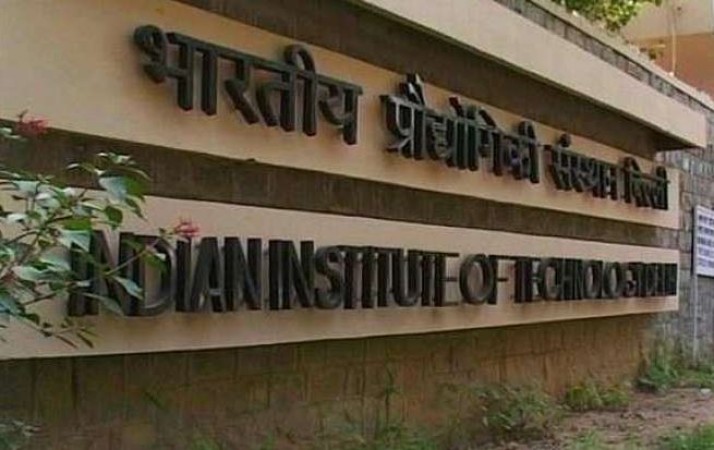
Introduction
Welcome to this comprehensive guide on the IIT-JEE (Indian Institute of Technology Joint Entrance Examination). In this article, we will delve into the details of one of India's most prestigious and competitive entrance exams. Whether you are a student aspiring to crack the IIT-JEE or someone curious to learn more about this examination, you've come to the right place. From understanding the exam pattern to preparing effectively, we'll cover it all. So, let's dive in and explore the world of IIT-JEE!
What is IIT-JEE?
The IIT-JEE, also known as the Indian Institute of Technology Joint Entrance Examination, is an annual entrance examination conducted in India. It serves as the gateway to prestigious Indian Institutes of Technology (IITs), National Institutes of Technology (NITs), and other top engineering colleges across the country. The exam is highly competitive and attracts lakhs of aspirants each year.
The Significance of IIT-JEE
The IIT-JEE holds immense significance for aspiring engineers in India. The IITs are renowned for their world-class infrastructure, esteemed faculty, and excellent placement opportunities. Securing admission to an IIT is considered a major achievement and opens doors to a rewarding career in engineering. Therefore, the IIT-JEE acts as a crucial milestone for students aspiring to pursue engineering as a profession.
Exam Pattern
To succeed in the IIT-JEE, it's essential to have a clear understanding of the exam pattern. The exam is divided into two stages: JEE Main and JEE Advanced.
JEE Main
JEE Main is the first stage of the IIT-JEE and serves as a screening test for JEE Advanced. Key details about JEE Main include:
Mode of Examination: JEE Main is conducted in both online (computer-based) and offline (pen and paper) modes.
Subjects: The exam covers three subjects: Physics, Chemistry, and Mathematics.
Question Type: JEE Main includes multiple-choice questions (MCQs) as well as numerical value-based questions.
Marking Scheme: Each correct answer carries four marks, while an incorrect answer leads to a deduction of one mark.
Exam Frequency: JEE Main is conducted multiple times a year, providing students with more than one opportunity to appear for the exam.
JEE Advanced
JEE Advanced is the second and final stage of the IIT-JEE. It is the gateway to securing admission into the prestigious IITs. Here are some key details about JEE Advanced:
Mode of Examination: JEE Advanced is conducted in online mode.
Subjects: The exam comprises three subjects: Physics, Chemistry, and Mathematics.
Question Type: JEE Advanced includes a combination of multiple-choice questions and numerical value-based questions.
Marking Scheme: The marking scheme for JEE Advanced varies for different questions. Some questions have negative marking, while others may have partial or full marks.
Eligibility: Only candidates who qualify in JEE Main are eligible to appear for JEE Advanced.
Tips for IIT-JEE Preparation
Preparing for the IIT-JEE requires dedication, hard work, and a strategic approach. Here are some valuable tips to help you in your preparation journey:
Understand the Syllabus: Gain a thorough understanding of the IIT-JEE syllabus and create a study plan accordingly. Divide your preparation time wisely for each subject and topic.
Practice Regularly: Regular practice is the key to success. Solve a variety of sample papers, previous year question papers, and mock tests to enhance your problem-solving skills and time management.
Seek Guidance: Seek guidance from experienced teachers, mentors, or coaching institutes specializing in IIT-JEE preparation. Their expertise can provide valuable insights and help you stay on the right track.
Revise Effectively: Regularly revise the concepts you have learned. Create concise notes and flashcards for quick revision. Focus on strengthening your weak areas and consolidating your knowledge.
Time Management: Time management plays a crucial role in the IIT-JEE. Learn to manage your time effectively during the exam. Practice solving questions within the allotted time frame to improve your speed and accuracy.
Stay Motivated: The journey to crack the IIT-JEE can be challenging. Stay motivated, set realistic goals, and reward yourself for achieving milestones. Surround yourself with a positive support system that encourages and uplifts you.
Conclusion
In conclusion, the IIT-JEE is a highly competitive examination that opens the doors to prestigious engineering institutes in India. By understanding the exam pattern, following effective preparation strategies, and seeking guidance when needed, you can increase your chances of cracking the IIT-JEE. Remember, success in this examination requires dedication, perseverance, and a strong passion for engineering. So, start your preparation journey today and aim for the stars!
Pharmacy Board Exam: A Comprehensive Guide to Success
Nursing Licensure Exam: Your Gateway to a Rewarding Career
Board Exams (such as CBSE, ICSE, etc.): A Comprehensive Guide